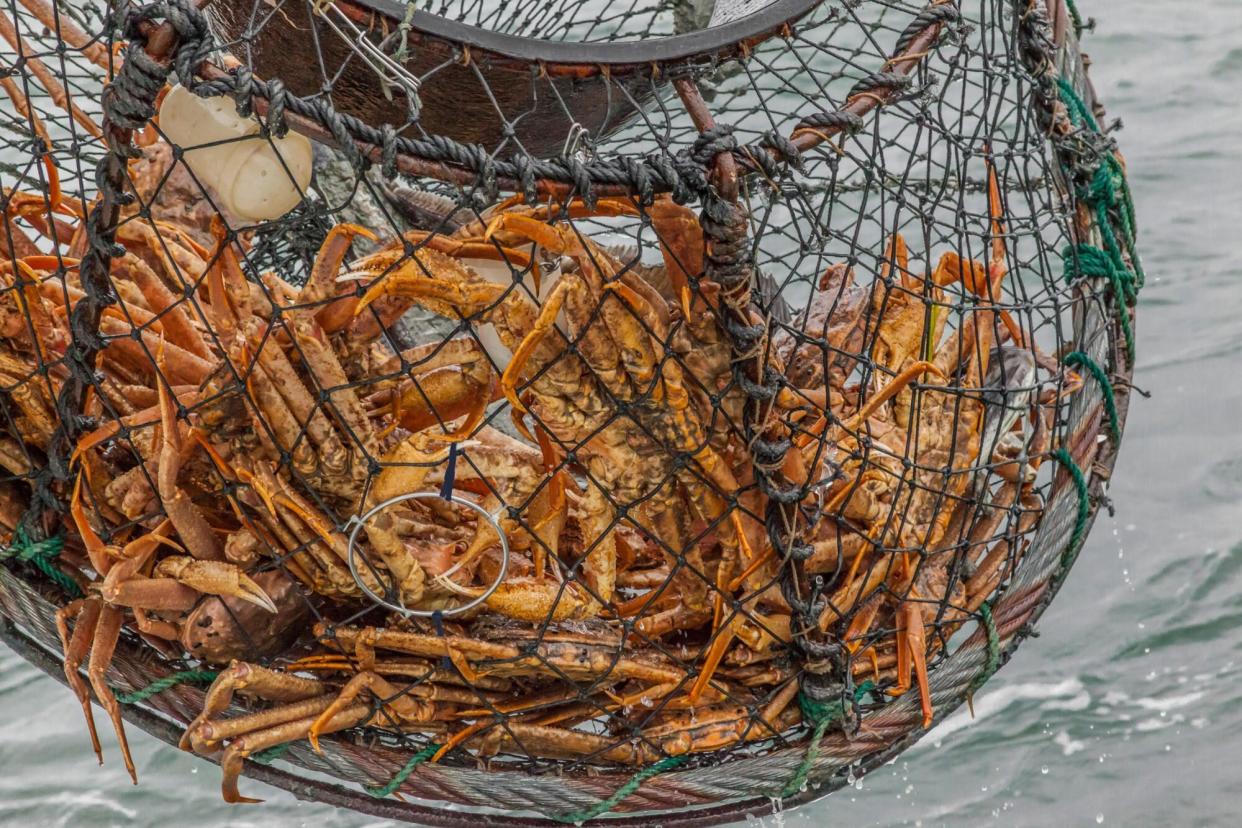Alaska Cancels Snow Crab Season for First Time Ever

Danita Delimont / Alamy Stock Photo
Earlier this week, the Alaska Department of Fish and Game announced that, for the first time ever, it would be canceling its upcoming Bering Sea snow crab season, due to a drastic decline in the crab population.
"Management of Bering Sea snow crab must now focus on conservation and rebuilding given the condition of the stock," the department said in a statement. "Efforts to advance our science and understanding of crab population dynamics are underway. With crab industry input, ADF&G will continue to evaluate options for rebuilding, including potential for sustainably fishing during periods of low abundance."
It's hard to overstate the sudden and beyond-precipitous decline in the number of snow crabs; according to CBS News, the population has plummeted by 90 percent in the past two years, a decline of an estimated one billion crabs.
ADF&G researcher Ben Daly told the outlet that disease could've been a contributing factor to the dwindling number of crabs, as is the steadily increasing temperature in the Bering Sea. "Environmental conditions are changing rapidly," he told the outlet. "We've seen warm conditions in the Bering Sea the last couple of years, and we're seeing a response in a cold adapted species, so it's pretty obvious this is connected. It is a canary in a coal mine for other species that need cold water."
Federal scientists have conducted an annual spring-and-summer survey of snow crab populations every year since 1975. (Well, almost every year: the survey was not conducted in 2020 due to the COVID-19 pandemic.) This year's survey revealed that the number of mature male snow crab had dropped by 22 percent since the 2021 survey was completed — and 2021's population was at the lowest level in over 40 years.
"[I]n 2021 when they surveyed, we saw the largest decline we've ever seen in the snow crab population, which was very startling, I think, for everyone," ADF&G area management biologist Miranda Westphal told Alaska Public Media. "It wasn't something we expected, we were expecting to have this record recruitment come through the population."
Although scientists will continue to conduct research into the causes of the population decline, that's little consolation for the fishermen who rely on the income generated by the annual snow crab harvests. The Seattle Times reports that about 60 fishing boats from Alaska, Oregon, and Washington harvested crab from the Bering Sea every year.
"I am struggling for words," Jamie Goen, the executive director of the Alaska Bering Sea Crabbers, told the outlet. "This is so unbelievable that this is happening. We have third-generation fishermen who are going to go out of business."

